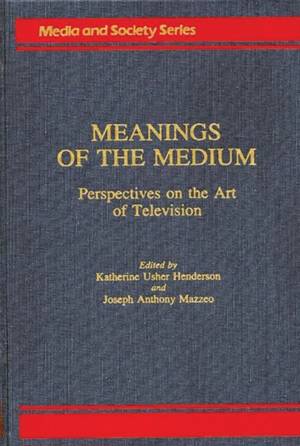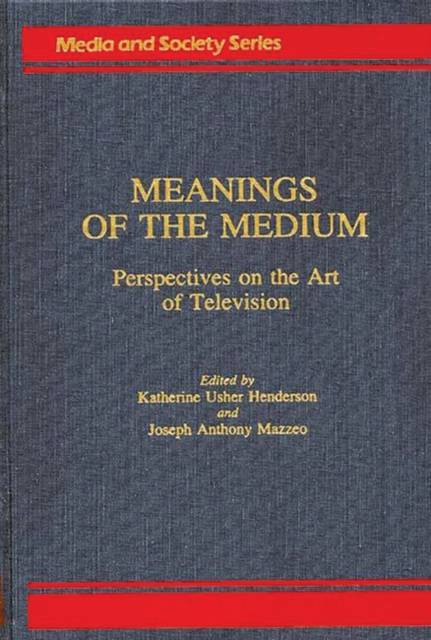
- Retrait gratuit dans votre magasin Club
- 7.000.000 titres dans notre catalogue
- Payer en toute sécurité
- Toujours un magasin près de chez vous
- Retrait gratuit dans votre magasin Club
- 7.000.0000 titres dans notre catalogue
- Payer en toute sécurité
- Toujours un magasin près de chez vous
Description
The latest addition to the Media and Society Series, Meanings of the Medium takes a new approach to the study of the past, present, and future of television. Most of its authors are not media experts but literary critics, philosophers, rhetoricians, and historians. They use their unique skills to examine three interwoven themes: the origin and meaning of American attitudes toward television, the relationship between high art and television's popular art, and the relationship between particular kinds of programs and the audience's sensibilities. Stressing an aesthetic and historical approach, the volume directs itself to the reasons why people watch particular programs and what these patterns tell us about ourselves.
This volume is divided into three sections. First, Television and Society stresses the dynamic relationship between a particular genre and the sensibility of its audience. Television Programming as Art traces the subtle connections between High culture and examples of contemporary television programs. The development of American attitudes toward television is documented by media experts in the final section, Television and Its Critics.Spécifications
Parties prenantes
- Auteur(s) :
- Editeur:
Contenu
- Nombre de pages :
- 215
- Langue:
- Anglais
- Collection :
Caractéristiques
- EAN:
- 9780275933906
- Date de parution :
- 20-03-90
- Format:
- Livre relié
- Format numérique:
- Genaaid
- Dimensions :
- 156 mm x 234 mm
- Poids :
- 480 g

Les avis
Nous publions uniquement les avis qui respectent les conditions requises. Consultez nos conditions pour les avis.






